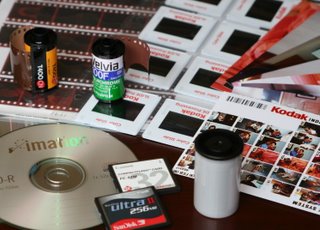I was wondering whether to call this post "Death of common-sense" or "Greed" or "Art of negotiation", and the first one seemed to make more sense.
A street performer came in front of our house with his performing crew (including a few animals), and seeing the opportunity to get some nice pictures of life in Bangalore, I ran in and picked up my camera gear. When I came out, the troupe was getting ready to perform. From what I can remember, street performers are usually paid around Re. 1 during my times, and due to inflation, they may now get about Rs. 10 per performance (my best guess).
As soon as the troupe leader saw my camera, he instructed the group to stop all operations. He came to me and asked for Rs. 200 for the show. When I asked him the reason for the request, he said that I was going to shoot pictures. I told him that lots of people shoot pictures of street performers and most of them don't even pay anything. I also told him that the pictures that I am taking are for my own pleasure and are not going to be used for any financial gains (not that he could figure that all out).
We negotiated for a while and I upped my price to Rs. 100, just to see what he does. I was more concerned about the troupe going to bed hungry than anything else. Finally, the leader did not budge (he had the dreaded "Take it or leave it" attitude, which is a big no-no in good negotiations) and he took his troupe to perform in another street (and make, at most Rs. 10/performance).
I felt so bad for his troupe of hard workers. What a pity to be paired up with a leader (actually, he is just a manager, with no leadership qualities) who lacks common sense.
Know what your options are when you start a negotiation.
Know what you are bargaining for.
Always bargain for individual or collective advantage/gain.
Know when to give way in order to create a win-win situation.
Never let your ego negotiate.
This person did not even know what he was bargaining for. He could not justify his terms, and he did not realize the impact of a standoff. I, for one, did not lose anything in this standoff, while he and his troupe lost their meal.
No wonder there are so many people going hungry everyday in this land of opportunity.
A street performer came in front of our house with his performing crew (including a few animals), and seeing the opportunity to get some nice pictures of life in Bangalore, I ran in and picked up my camera gear. When I came out, the troupe was getting ready to perform. From what I can remember, street performers are usually paid around Re. 1 during my times, and due to inflation, they may now get about Rs. 10 per performance (my best guess).
As soon as the troupe leader saw my camera, he instructed the group to stop all operations. He came to me and asked for Rs. 200 for the show. When I asked him the reason for the request, he said that I was going to shoot pictures. I told him that lots of people shoot pictures of street performers and most of them don't even pay anything. I also told him that the pictures that I am taking are for my own pleasure and are not going to be used for any financial gains (not that he could figure that all out).
We negotiated for a while and I upped my price to Rs. 100, just to see what he does. I was more concerned about the troupe going to bed hungry than anything else. Finally, the leader did not budge (he had the dreaded "Take it or leave it" attitude, which is a big no-no in good negotiations) and he took his troupe to perform in another street (and make, at most Rs. 10/performance).
I felt so bad for his troupe of hard workers. What a pity to be paired up with a leader (actually, he is just a manager, with no leadership qualities) who lacks common sense.
Know what your options are when you start a negotiation.
Know what you are bargaining for.
Always bargain for individual or collective advantage/gain.
Know when to give way in order to create a win-win situation.
Never let your ego negotiate.
This person did not even know what he was bargaining for. He could not justify his terms, and he did not realize the impact of a standoff. I, for one, did not lose anything in this standoff, while he and his troupe lost their meal.
No wonder there are so many people going hungry everyday in this land of opportunity.



